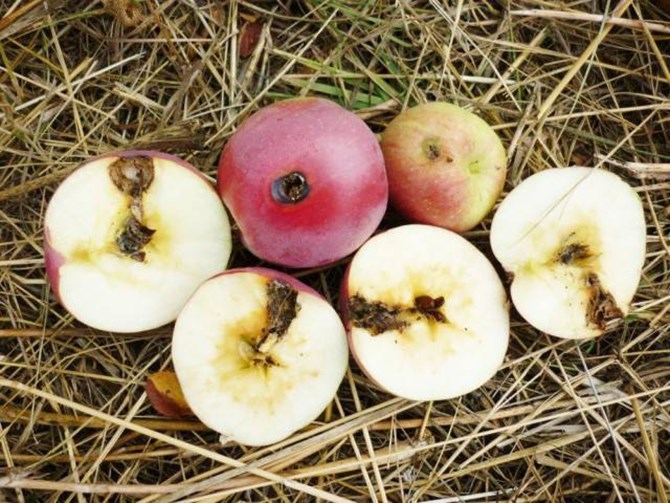
Codling moths are getting harder to handle in the Okanagan.
Image Credit: SUBMITTED /SIR
October 16, 2019 - 6:30 AM
After almost 30 years, the Sterile Insect Release program is running into challenges in controlling the pest that can destroy Okanagan apple crops.
While half of the 1,725 orchards in the Okanagan and Kootenays that are using the program had absolutely no moths in 2018, some smaller orchards are becoming heavily infested, Melissa Tesche, general manager for the program, told West Kelowna city council today, Oct. 15.
“The codling moth, when you think of the proverbial worm in the apple, that’s codling moth,” she said. “It can decimate entire orchards.”
The program started operating in the early 1990s to replace dangerous chemical sprays. Sterile male moths are bred and released into orchards to breed with females so no offspring are created.
The target is to have 90 per cent of the orchards having almost no (0.2 per cent) damage. In reality, in 2018, 86 per cent of the orchards met that target.
But a growing number of smaller orchards are showing high levels of infestation. Ten per cent of the orchards had 75 per cent of the moths that were trapped, while one per cent had 25 per cent of the moths.
Because there are so many moths in some of the orchards, the program can’t release enough males to control the spread of the moth so growers will need to spray.
There are two reasons they’re getting harder to control, Tesche said.
One is the fact that it’s getting warmer so there are more breeding days for the moths. The other is the growth of sales at fruit stands and farmers’ markets, so the moths travel into new areas in fruit boxes.
The program is paid, in part, through a tax on each acre of orchard and, in part, through taxes on all properties.
There has been no increase in taxes since 2010 to fund the $3.7 million program, despite the fact the acreage for apples fell from about 22,000 acres when the program started to just over 8,000 today.
That means the plant where sterile moths are bred, which is near Osoyoos, is operating under capacity. Starting last year, the plant began selling moths into Washington State where there are 70,000 acres of orchards just across the border. By the end of August, that brought in $410,000 in revenue.
To contact a reporter for this story, email Rob Munro or call 250-808-0143 or email the editor. You can also submit photos, videos or news tips to the newsroom and be entered to win a monthly prize draw.
We welcome your comments and opinions on our stories but play nice. We won't censor or delete comments unless they contain off-topic statements or links, unnecessary vulgarity, false facts, spam or obviously fake profiles. If you have any concerns about what you see in comments, email the editor in the link above.
News from © iNFOnews, 2019